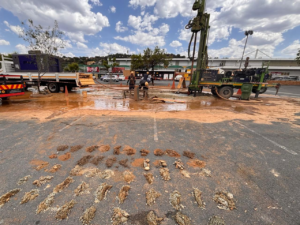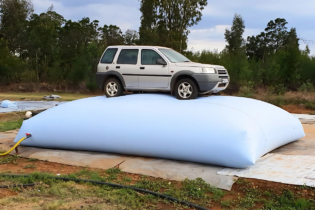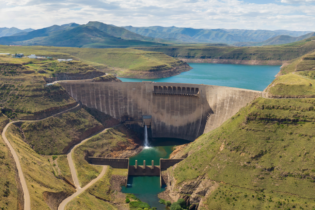Following the recent media coverage of a borehole that damaged the Gautrain tunnel in Johannesburg, the Borehole Water Association of Southern Africa (BWA) has emphasised that borehole drilling is not an illegal activity and has advocated for the responsible and legal use of borehole water amid the National Water and Sanitation Indaba on 27-28 March 2025 at the Gallagher Convention Centre in Midrand, Gauteng. This crucial gathering highlights the government’s commitment to tackling South Africa’s water security challenges and ensuring reliable, sustainable water and sanitation services for all citizens.
According to Albertus Lombaard, technical advisor in the BWA Drilling Division, borehole drilling provides access to the earth’s most valuable resource – safe drinking water – access to which is internationally recognised as a human right. Lombaard explained that ’Consent for borehole’ procedures were in place, but these measures had not been consistently enforced or followed due to the ongoing water crisis. “The unfortunate incident involving a non-member of the BWA drilling into the Gautrain tunnel has highlighted the consent process, leading to a standstill in the borehole drilling industry in Gauteng,” he said. “As a consequence of this incident, drillers have been arrested, and police officials are demanding to see proof of consent.” He said that city bylaws safeguard municipal infrastructure, and most municipalities implement an approval process to minimise the risk of damage to this infrastructure. The process is to gather input from various departments before drilling can be conducted.“In light of the water crisis in Gauteng, the BWA is currently collaborating City of Johannesburg and Ekurhuleni municipalities to expedite borehole consent approvals and reduce the turnaround time for these approvals,” he said.He pointed out that, in 2016, a memorandum of agreement (MoU) had been signed by Johannesburg Water managing director Lungile Dhlamini and BWA President, Colin Rice to encourage the city’s residents to switch to borehole water – as a way of mitigating the crippling drought. Although the drought has not continued, the challenges related to water availability and infrastructure conditions have left many taps in the city dry in recent months, continued Lombaard, emphasising the importance of boreholes in alleviating short-term water crises.
“The BWA advocates for the responsible and legal use of borehole water throughout Southern Africa,” he said. “BWA members engage in responsible drilling activities that consider risks to infrastructure and manage those risks appropriately.”

Albertus Lombaard, technical advisor in the BWA Drilling Division
“The BWA has engaged with city officials to establish a working group, where we collaborate to explore ways of expediting the consent process,” he said. “The BWA urges clients, contractors and officials to approach each situation with caution and restraint while the city and industry strive to find a quicker path forward.”
Groundwater is the primary source of water for over 80% of towns in Southern Africa, noted Lombaard. “Water is life, and a compliant borehole allows responsible access to this precious resource,” he said.






